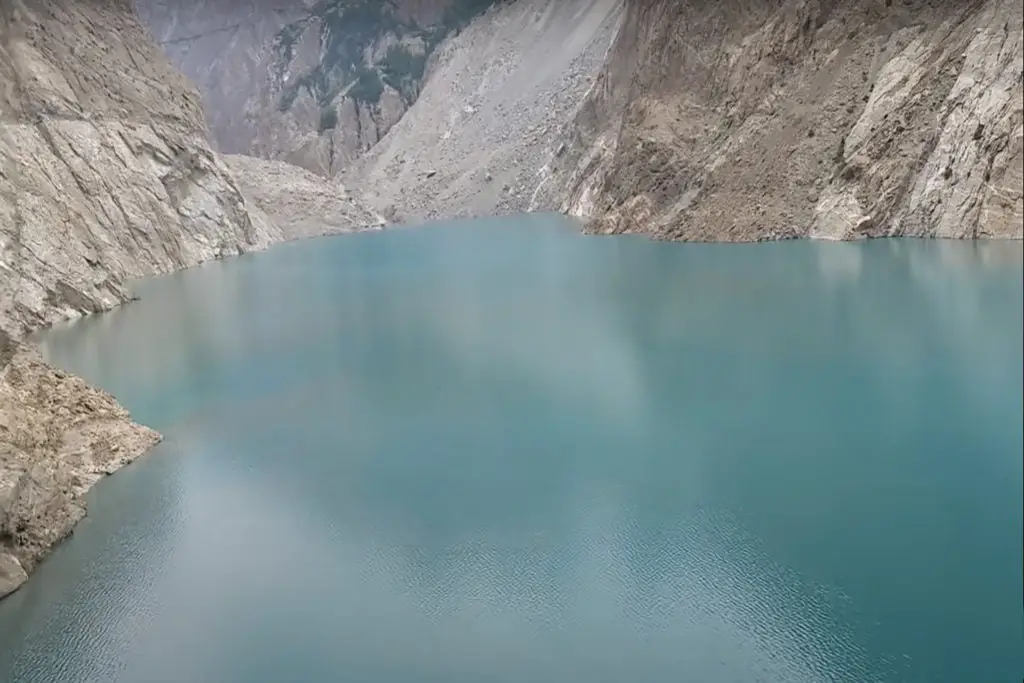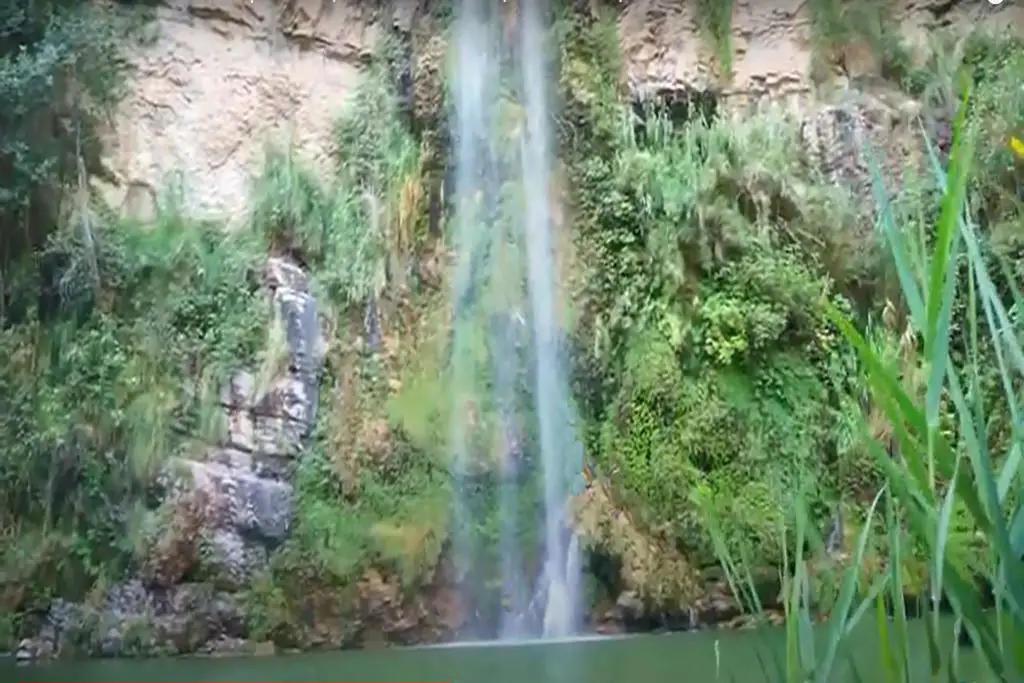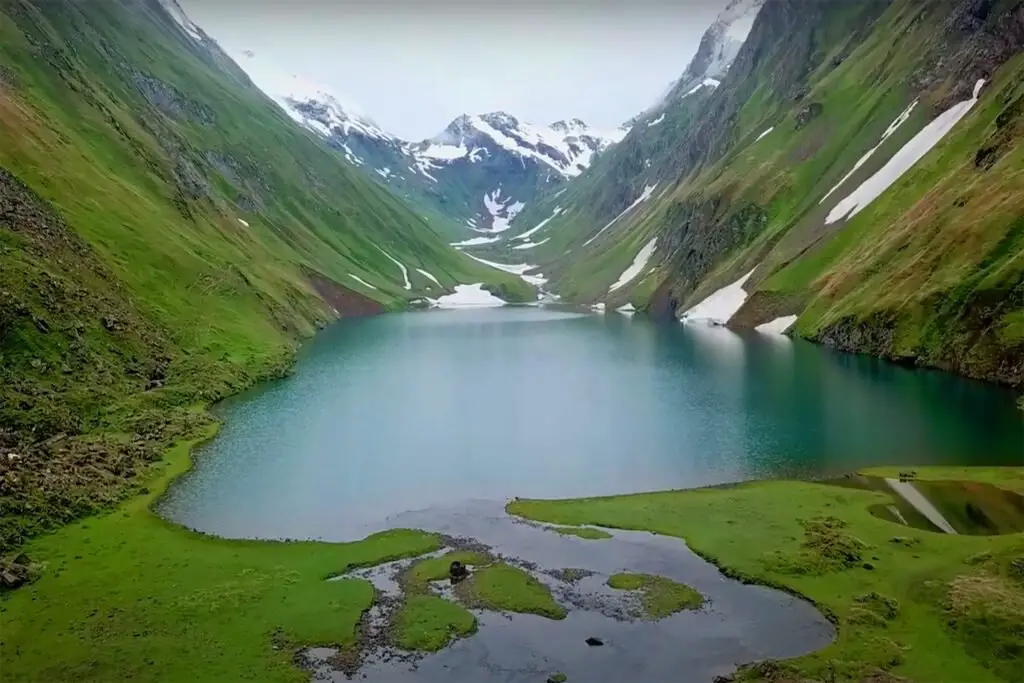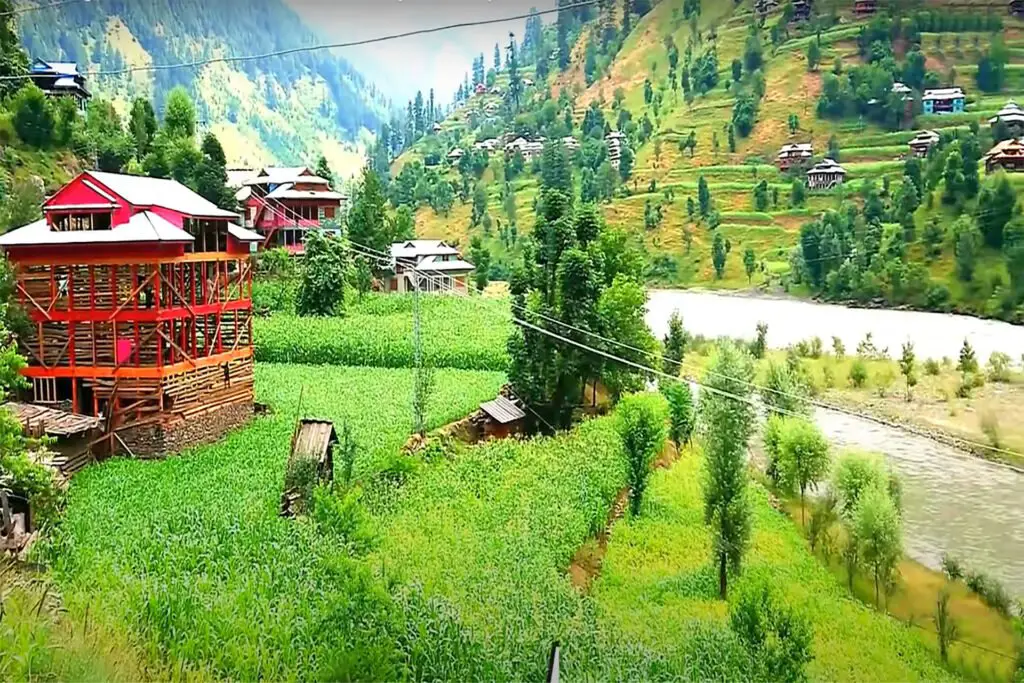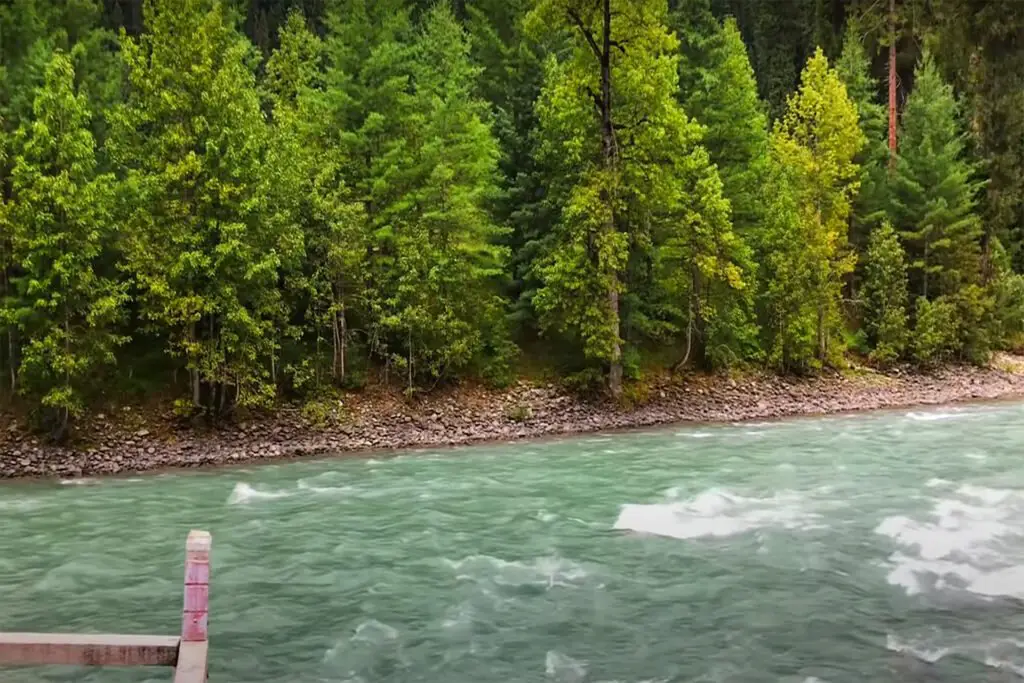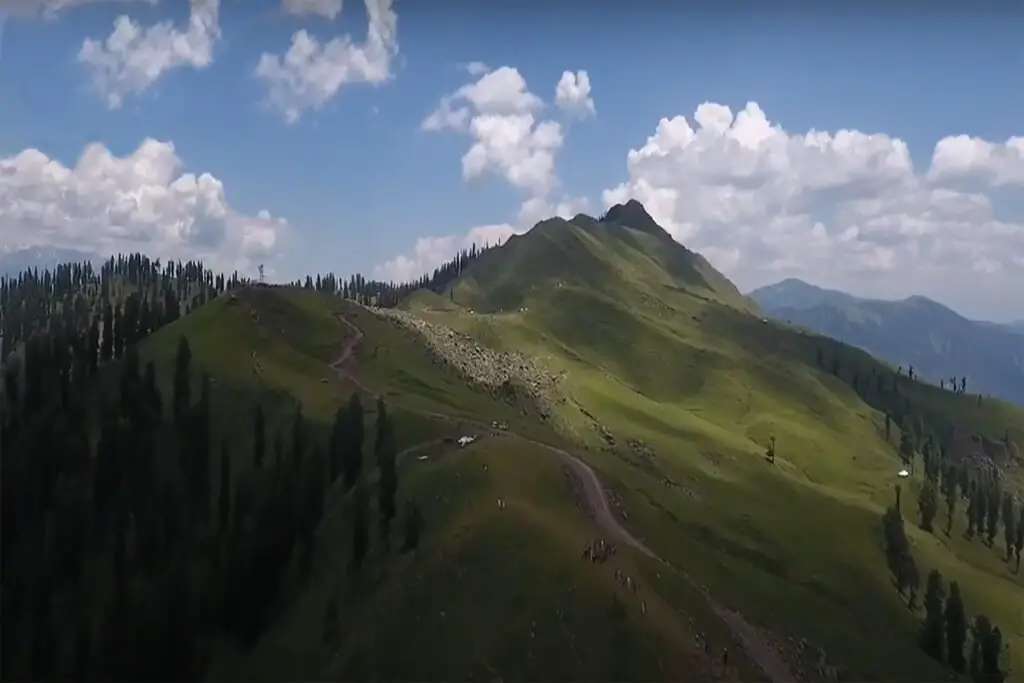Attabad Lake is a lake located in the Gojal district of the Hunza Valley in Gilgit-Baltistan, Pakistan. It was created in January 2010 as a result of a major landslide in Attabad. The lake has become one of the main tourist attractions in Gilgit-Baltistan, offering activities such as boating, jet-skiing, fishing and other recreational activities
Attabad Lake Location
Attabad Lake is about half an hour east of Karimabad, the capital of Hunza County in the Gilgit-Baltistan province of Pakistan (Karimabad, fortunately, was named one of the five “best tourist destinations” in Pakistan by The Guardian). If you arrive independently, you can plan a trip to the lake with local directions or to Karimabad.
Most boat trips usually take at least an hour. Alternatively, you can plan a five-day trip from Islamabad, which usually includes the Hunza Valley, Attabad Lake, and the Pakistan-China border region.
Attabad Lake History / Disaster
ON JANUARY 4, 2010, a massive landslide swept across the Hunza Valley in the far north of Gilgit Baltistan Region in Northern Pakistan. The town of Attabad was buried, killing 20 people and destroying 26 homes. However, the disaster was far from over. A landslide had devastated the Hunza River, and rapid flooding of the newly built lake threatened the villages below and above the dam.
The water behind the newly built natural dam rose rapidly to a depth of more than 1,000 feet [300 m], forming a lake that eventually measured eight miles [13 km] in length. As the lake expanded, it evacuated about 6,000 people from river valleys and flooded the seven-mile [12 km] stretch of Karakoram Highway, leaving the region in a state of disarray.
Attabad Lake Dam
In May 2010, local authorities dug a spillway to control the flow of water over the dam. After a month, however, much water flowed over the landslide. At the bottom of the dam, the lower Shishkat was completely submerged and the Gulmit was flooded.
In August 2010, the spillway was fully operational. But by then, about 25,000 people had been affected, either by landslides, floods, or highway damage. The government provided relief for the victims, but many still feared that the disaster would continue.
If a dam explodes, 50,000 people living at the bottom of the river could be in danger, as well as a road that has served as an important trade link with China.
Happily, the dam holds. From this tragedy came an unexpected turn of events that would eventually lead to an increase in tourism in the area: Lake Attabad, a shiny green lake that is now one of the most attractive places in Pakistan’s Gilgit-Baltistan region.
The lake’s cool waters are magnificent turquoise in early spring and early summer when the melting waters from the surrounding mountains add ice to the lake. In winter, the lake is often frozen.
Tourist Activities at Atabad Lake
Many visitors come to enjoy the scenery, where the lake is frozen. There are a variety of leisure activities that take place in and around the lake, including boating, jet skiing, and fishing. As a result of increased tourism, a growing number of hotels and guesthouses have sprung up near the lake, along with a number of camps.
Most likely, the influx of tourists has benefited many locals who have been affected by the devastation. And now that the highway has been rebuilt with new tunnels, access is better than ever. However, if you take a boat to the tropical area of Attabad Lake, it is amazing to think that 300 feet [300 m] below you sits a once-lived valley.
Attabad Lake is now one of the top tourist attractions in Pakistan. However, as the water level rises, the Pakistani government plans to build a dam around the lake.
5 Tunnels on Karakoram Highway
Part of the Karakoram Highway is submerged due to landslides. On 14 September 2015, the Prime Minister of Pakistan, Mian Nawaz Sharif, inaugurated a 24 km (15 mi) KKH section containing five tunnels in Attabad Barrier Lake.
The five tunnels are known as Pakistan-China Friendship Tunnels and are connected by a distance of seven kilometers (4.3 mi). They are part of a 24 km (15 mi) stretch of Karakoram Highway (KKH) that was damaged in 2010 due to landslides in Attabad. The refurbishment project is a construction project completed at a cost of $ 275 million.
The redevelopment has restored road connections between Pakistan and China and it is expected that a significant amount of trade will be made between China and Pakistan using it. The KKH is also part of the China-Pakistan Economic Corridor and is expected to significantly boost economic integration between the two nations.
Since its inception, the lake has been a major tourist attraction. The color of the lake is unique and enhances the absolute desire for visitors to see this deep blue color, which serves as the main guest and location for Instagram photos. The tops of the empty trees in the middle of the lake provide insight into what led to the creation of this natural resource.
A sunset mixed with a deep shade of turquoise turns the water into a fire, with a contrasting orange hue that spans the majestic mountains surrounding a 25-mile-long lake. Beauty does not end when the sun goes down, as the light of the moon brings a new level of wonderful grace into sight.
It is not difficult to get caught in the silence that may exist in the lake. Water sports and hiking trails are available, with an increasing number of hotels to meet the growing number of tourists.
Attabad Lake Hotels
The glittering turquoise lake of Attabad is one of the most popular tourist attractions in the Gilgit Baltistan region. Visitors come to get a spectacular view of the area and enjoy a variety of activities on the lake and in the surrounding areas, such as boating, jet skiing, etc.
The increase in the flow of tourists has provided many opportunities for locals as they open hotels, and guest houses around the lake.
Indeed, the influx of tourists has benefited local people who have been severely affected by the catastrophic natural disaster, and as the highway has been rebuilt, access is now better than ever. However, as a tourist on a boat in the tranquil, tranquil, and tranquil surroundings of Attabad Lake, it is amazing to think that 300 meters below you, there was once a living village.
Gilgit to Attabad Lake Distance
Attabad Lake is located at a distance of around 125 km from Gilgit City. Travel time from Gilgit to Attabad Lake by road is a little less than 3 hours through Karakoram Highway i.e. N-35.
Islamabad to Attabad Lake Distance
Attabad Lake is located at a distance of around 622 km from Islamabad City. Travel time from Islamabad to Attabad Lake by road is a little less than 13.5 hours through N-15 and then Karakoram Highway N-35.

